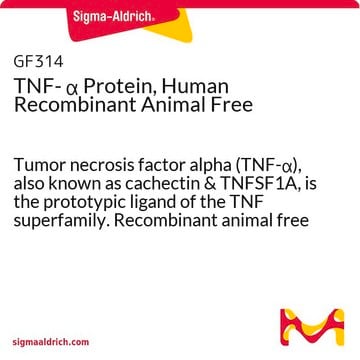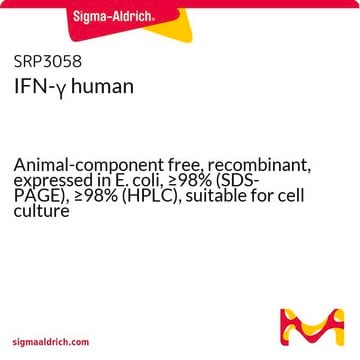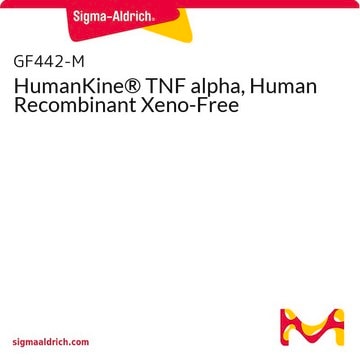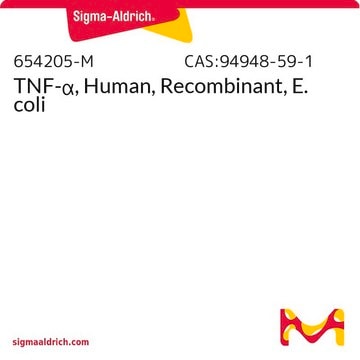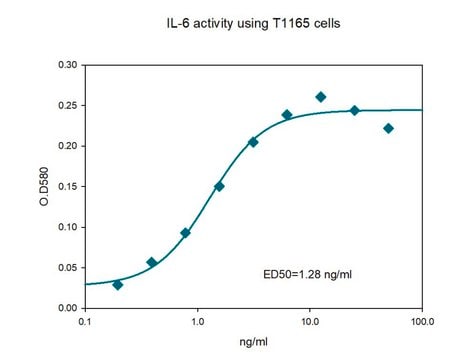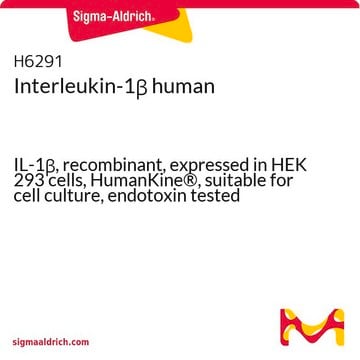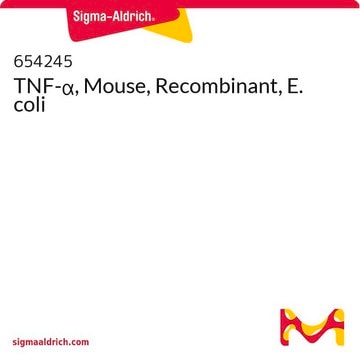SRP3177
TNF-α human
Animal-component free, recombinant, expressed in E. coli, suitable for cell culture
Sinónimos:
Cachectin, Cytotoxin, Differentiation-inducing factor (DIF), Necrosin, Tumor Necrosis Factor
About This Item
Productos recomendados
biological source
human
Quality Level
recombinant
expressed in E. coli
assay
≥95% (SDS-PAGE)
form
lyophilized
potency
≤0.10 ng/mL ED50
mol wt
17.4 kDa
packaging
pkg of 50 μg
technique(s)
cell culture | mammalian: suitable
impurities
≤1.00 EU/μg endotoxin
UniProt accession no.
shipped in
wet ice
storage temp.
−20°C
Gene Information
human ... TNF(7124)
General description
Application
Biochem/physiol Actions
Sequence
Physical form
Reconstitution
Storage and Stability
Storage Class
13 - Non Combustible Solids
wgk_germany
WGK 3
flash_point_f
Not applicable
flash_point_c
Not applicable
Certificados de análisis (COA)
Busque Certificados de análisis (COA) introduciendo el número de lote del producto. Los números de lote se encuentran en la etiqueta del producto después de las palabras «Lot» o «Batch»
¿Ya tiene este producto?
Encuentre la documentación para los productos que ha comprado recientemente en la Biblioteca de documentos.
Los clientes también vieron
Artículos
Discover answers to your frequently asked questions about animal component-free, xenobiotic-free, and chemically defined media and reagents for cell culture.
Discover answers to your frequently asked questions about animal component-free, xenobiotic-free, and chemically defined media and reagents for cell culture.
Discover answers to your frequently asked questions about animal component-free, xenobiotic-free, and chemically defined media and reagents for cell culture.
Discover answers to your frequently asked questions about animal component-free, xenobiotic-free, and chemically defined media and reagents for cell culture.
Nuestro equipo de científicos tiene experiencia en todas las áreas de investigación: Ciencias de la vida, Ciencia de los materiales, Síntesis química, Cromatografía, Analítica y muchas otras.
Póngase en contacto con el Servicio técnico


